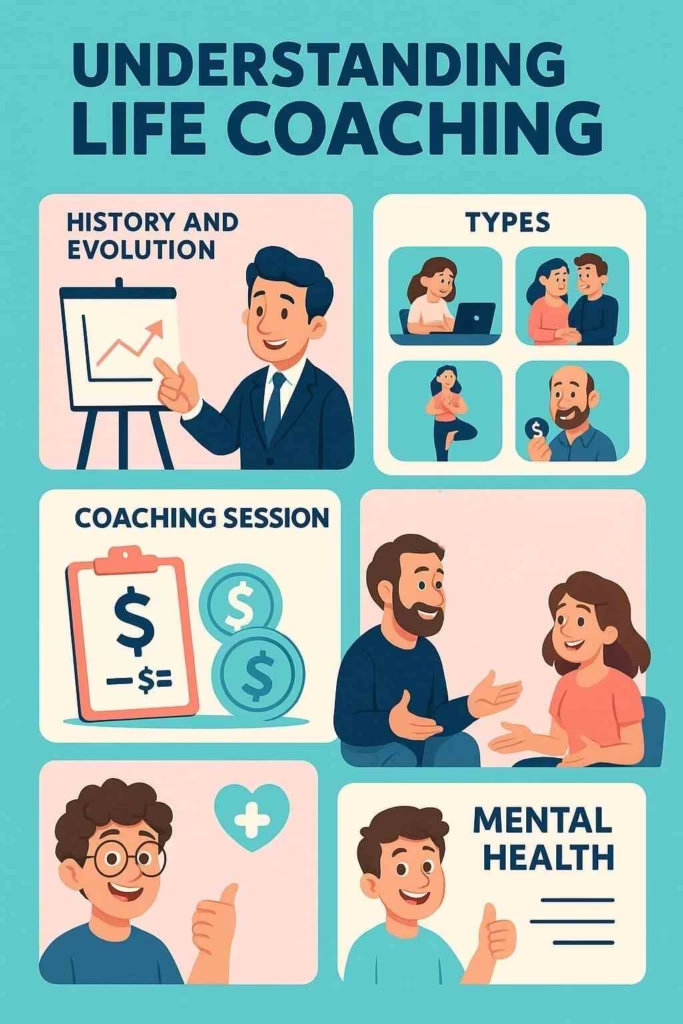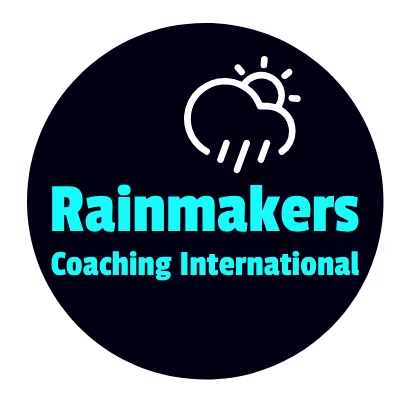Understanding Life Coaching: Benefits, Methods, and Misconceptions
Introduction to Life Coaching
Imagine a life where you’re not just surviving, but thriving—where clarity replaces confusion and confidence fuels your every step. This is the essence of life coaching: a transformative partnership between a professional coach and a client, focused on personal growth, well-being, and achieving meaningful goals across both your personal and professional life.
Unlike therapy, which often addresses past trauma and treats mental health conditions, life coaches focus on the present and the future—helping clients who may feel stuck, creating new possibilities through life visioning, empowered actions and accountability. Enabling clients experience personal fulfilment in their life.
Few figures have done more to elevate this field than Tony Robbins. With his electrifying seminars, bestselling books, and one-on-one coaching interventions, Tony helped brought life coaching into mainstream awareness.
His work elevated coaching from the shadows of corporate boardrooms and sports into the lives of millions seeking change. Robbins championed the belief that with the right mindset and mentorship, anyone could transform their life.
He taught us that real transformation starts with decision, not circumstance.
“It is in your moments of decisions that your destiny is shaped”
— Tony Robbins
Today, life coaching is one of the fastest-growing helping professions worldwide, recognised for its ability to help individuals navigate challenges, clarify values, and design a fulfilling life that leads to personal growth —and it all begins with one conversation.
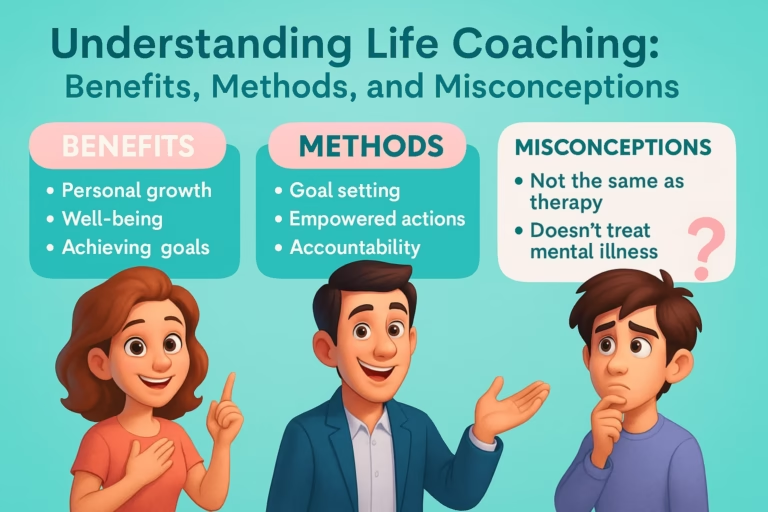
The History and Evolution of Life Coaching
The roots of life coaching trace back to the late 1980s, when people began seeking growth beyond traditional mental health treatment. While therapy helped with emotional wounds, many were searching for guidance with purpose, productivity, and personal development. People were craving something more: clarity in life chaos, direction in career transition, and breakthroughs in both mindset and results.
This demand birthed a new profession—and Tony Robbins quickly became its pioneer. Though not a licensed therapist, Robbins brought together elements of performance psychology, self-awareness, and goal-driven action. He emphasized action over analysis, vision over victimhood. His work helped redefine what coaching could be: not a fix for what’s broken, but a framework for achieving one’s highest potential.
Simultaneously, the coaching industry evolved to incorporate a blend of psychology, leadership training, and the human potential movement. Today, it includes specialized fields like career coaching, relationship coaching, health and wellness coaching, and life planning.
Organizations such as the International Association of Neuro-Linguistic Programming, Center for Credentialing & Education (CCE) or the International Coaching Federation (ICF), began setting professional standards, offering certification, and legitimizing the practice. According to the ICF findings, the number of active coaching practitioners has surged in recent years, reflecting a growing demand for personal and professional development.
“80% of coaching clients report improved self-confidence, 70% experience enhanced work performance, and 73% enjoy better relationships.”
— ICF Global Coaching Study
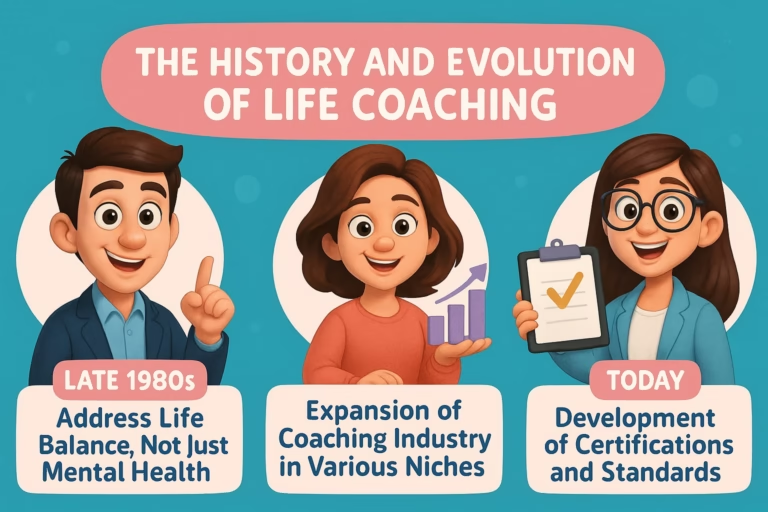
What Is a Life Coach?
A life coach is a trained professional who helps clients identify, articulate, and set meaningful personal and professional goals. Through a combination of coaching sessions, powerful questioning, strategizing and supportive accountability, a life coach helps clients gain clarity, overcome obstacles, and stay focused on their vision.
Take Lisa, a senior marketing manager who, from the outside, had everything—an impressive title, a six-figure salary, and the respect of her peers. But inside, she felt depleted, disconnected, and uncertain of her path. Despite her achievements, Lisa quietly wrestled with burnout, emotional exhaustion, and a deep yearning for something more in life. Her mental health was beginning to fray under the weight of unspoken dissatisfaction.
Like many clients seeking life coaching, Lisa wasn’t facing a crisis—but rather a slow, aching disconnect from her own sense of purpose. She was navigating invisible personal challenges: the fear of wasting her potential, the guilt of wanting more, and the discomfort of not knowing what “more” really looked like. She feels stuck.
During her first life coaching session, her life coach didn’t dive into goal setting or strategies. Instead, they began with a powerful, grounding question:
“If you woke up tomorrow doing what truly lights you up, what would you be doing?”
That question pierced through the fog. Lisa had never really stopped to ask herself that. As the session continued, she began identifying obstacles and the difficult emotions that had kept her in current circumstances —old fears, assumptions about success, and a need for external validation. Coaching gave her space to become more self-aware—to hear her own voice, sometimes for the first time in years.
Over the next six months, Lisa experienced significant differences in how she showed up—in work and in life. She transitioned into a new, purpose-driven role at a mission-based tech company. She began speaking at industry events, not just about marketing, but about authenticity and values-driven leadership. She even launched a passion project—a mentorship platform for young women entering the workforce—aligned deeply with her core values. It satisfies her longing for personal fulfillment.
Coaching didn’t change who Lisa was. It helped her become who she was always meant to be. You see, a coach is not a fixer—they’re a catalyst. They hold up a mirror so you can see your true self and step into it, fully.
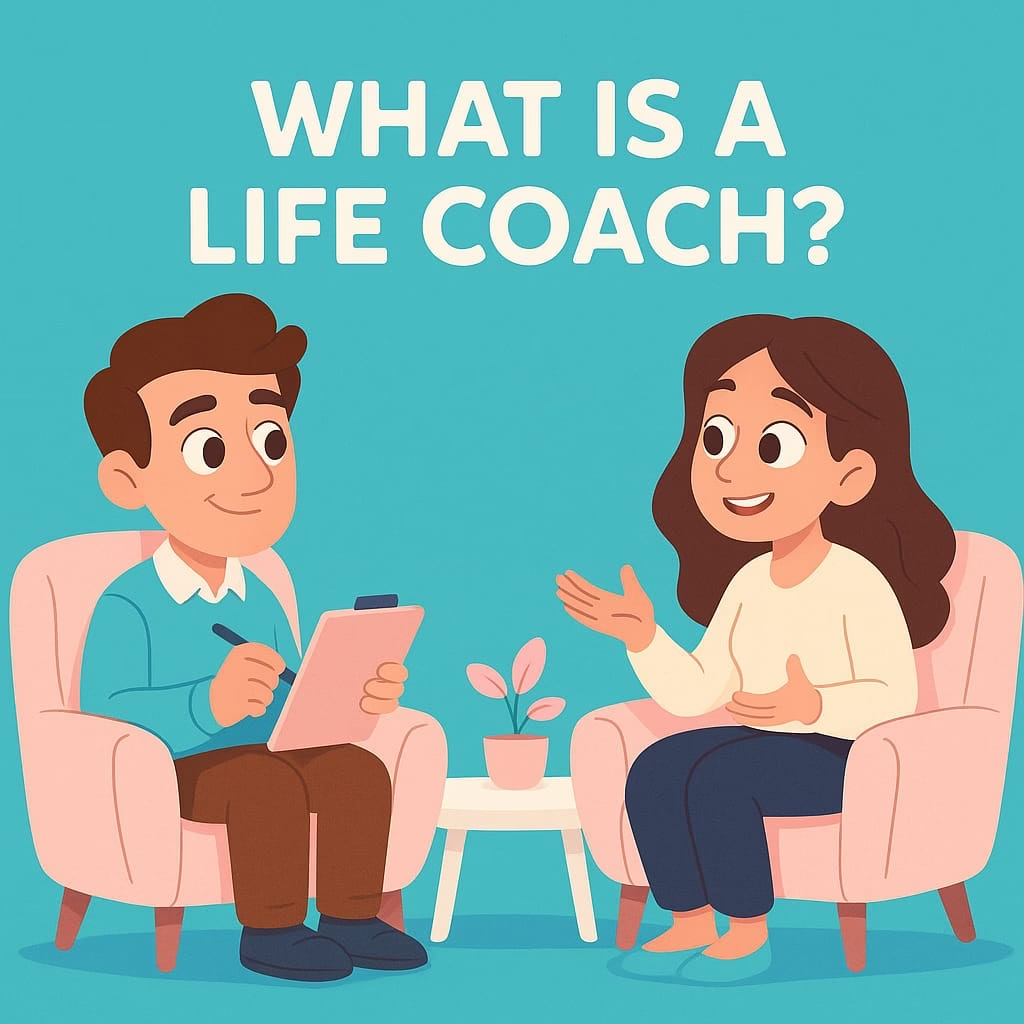
“Coaching is not about changing who you are—it’s about becoming who you’ve always been”
— Rainy Rainmaker(Read more on Rainy Rainmaker’s blog)
A good coach doesn’t give you the answers—they guide you toward your own truth. They help you navigate personal growth with compassion and clarity. They support you in overcoming inner resistance, building courage, and finding clarity in chaos. Through this process, Lisa didn’t just redesign her career—she reclaimed her voice, her energy, and her personal fulfillment.
That’s the true power of coaching: the ability to awaken someone’s inner wisdom and catalyze real, lasting transformation.
Life Coaches and Their Fees
One of the most common questions clients ask is: how much do life coaches charge?
Life coaches fees vary widely depending on the life coach’s credentials, niche, and experience. On average, life coaches charge between $75 to $500 per hour. Specialised fields like executive coaching may cost more, while new coaches or group programs may be more accessible.
Some offer monthly plans, bundled sessions or sliding-scale options. While it may seem like a significant investment, many clients find that coaching leads to breakthroughs and positive changes that ripple across all areas of life—emotional well-being, build confidence, career fulfilment, relationships, and even financial growth.
The return on investment can be profound. According to the ICF and PwC:
“The average return on investment from coaching is 5.7x the initial investment.”
For many clients, coaching is not an expense—it’s a decision to stop delaying the life they know they’re meant to live.

Types of Life Coaching
Career Coaching
– Clarify purpose, navigate career transitions, or prepare for promotions. Career coaching supports goal setting, values alignment, and stepping into fulfilling, purpose-driven work.
Relationship Coaching
– Heal old wounds, improve communication, or build deeper connection personally or professionally
Personal Development Coaching
– Enhance self awareness, break through limiting beliefs, and achieve personal goals
Health and Wellness Coaching
– Improve fitness, nutrition, energy, and emotional resilience
Financial Coaching
– Build a healthy money mindset and achieve long-term life goals
Life Planning Coaching
– This coaching focuses on designing a roadmap for a fulfilling life, aligned with your values and passions – ie. creating your ideal life vision for personal or professional life
Inside a Coaching Session
A life coaching session is a sacred space for transformation.
It’s typically a structured yet dynamic conversation lasting 45 to 90 minutes. Together, the life coach and client explore current challenges, uncover internal blocks, and build actionable strategies toward personal and professional goals.
The life coaching sessions may include tools like visualisation, personality and strengths-based assessments, guided reflections or journaling, or emotional mastery techniques. Some life coaches assign coaching tasks between sessions to deepen reflection and progress.
One client, Michael, came to coaching overwhelmed by his startup’s rapid growth. In just three months, his coach helped him streamline decision-making, delegate with confidence, and reclaim time for his family. Michael shared, “Coaching didn’t just help my business—it gave me my life back.”
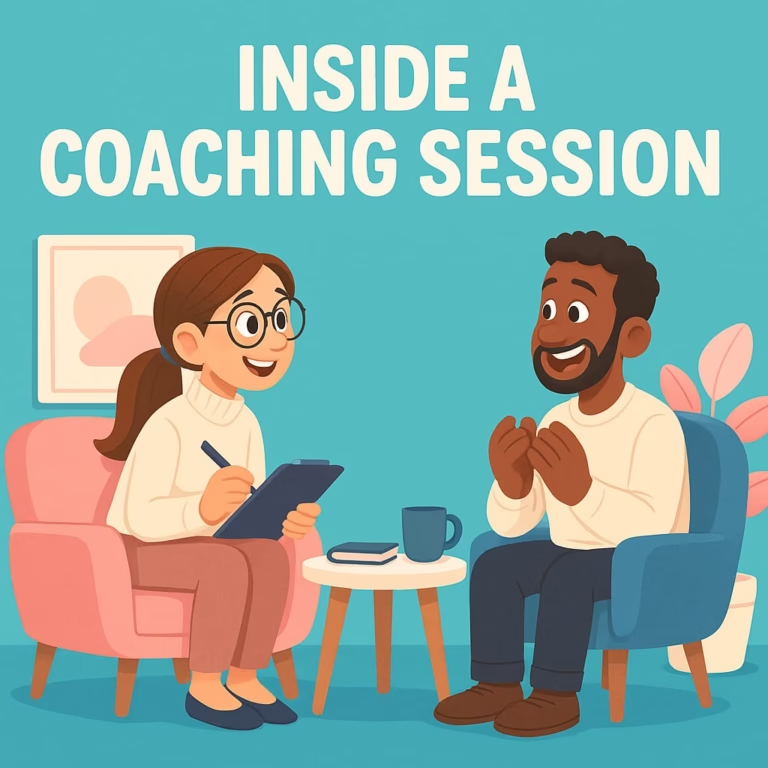
Mental Health Considerations
Life coaching is not a substitute for therapy
Unlike mental health professionals, life coaches are not licensed to treat mental disorders, diagnose conditions, or prescribe medication. Individuals struggling with clinical depression, PTSD, or severe mental health conditions should seek care from a licensed mental health professionals.
That said, life coaching can work beautifully alongside therapy. While therapy serve to heal the past, a life coach empowers you to design your future. Many coaching clients benefit from this dual approach—addressing mental health issues while setting meaningful goals, building self confidence and personal growth.
Life coaches may refer clients to licensed therapists if deeper mental health conditions arise. Ethical life coaches know their scope and prioritize their client’s overall well-being above all.
Life coaching is also the next best step for those who’ve completed therapy. It helps clients move forward—toward vision, vitality, and real-world outcomes.
When I asked some of my coaching clients who have been through therapies on why they are seeking life coaching, they said “I’m tired of talking about my problems. I want to create a real change”.

How to Become a Life Coach
The path to becoming a professional coach typically involves formal training, supervised practice, and certification from respected organizations. Every coaches have different background and experiences. Some coaches have backgrounds in psychology, Neuro-Linguistic Programming, Strategic Intervention, HR, leadership, or education.
Top-tier training programs cover a range of skills including:
Active listening and coaching questioning techniques
Coaching ethics and boundaries
Neuroscience and behavioural psychology
Communication skills
Goal setting, habit formation and personal development
Many life coaches continue their development through mentorship and lifelong learning. The best coaches aren’t just qualified—they’re constantly growing alongside their coaching clients.
Common Criticisms of Life Coaching
While life coaching has helped millions, it’s not without criticism. The lack of regulation means anyone can call themselves a coach without training. This has led to concerns about relevant experience, poor boundaries, or overpromising results.
However, the coaching profession is evolving. Organizations like the ICF, IANLP, and NBHWC now offer certification pathways, codes of ethics, and continuing education. The bar is rising, and most coaches today undergo rigorous training to ensure quality, safety, and impact.
The key difference lies in due diligence. Before hiring a life coach, clients should vet their qualifications, experience, client testimonials, and most importantly, explore the chemistry fit through a discovery call.
The Role of Life Coaches in Society
As the world becomes increasingly complex, and raising numbers of people experiencing borderline mental health issues, more people seeking clarity, purpose, and balance are turning to life coaching for support. Life coaches help clients:
Navigate life transitions
Break free from negative patterns
Gain clarity on their calling
Improve mental health and emotional resilience
Build self confidence
Improve their overall well-being
Research shows that 80% of coaching clients report improved self-confidence, 70% experience enhanced work performance, and 73% enjoy better relationships – ICF Global Coaching Study)
In short, life coaches are playing a vital role in shaping a healthier, more empowered, and more connected society.
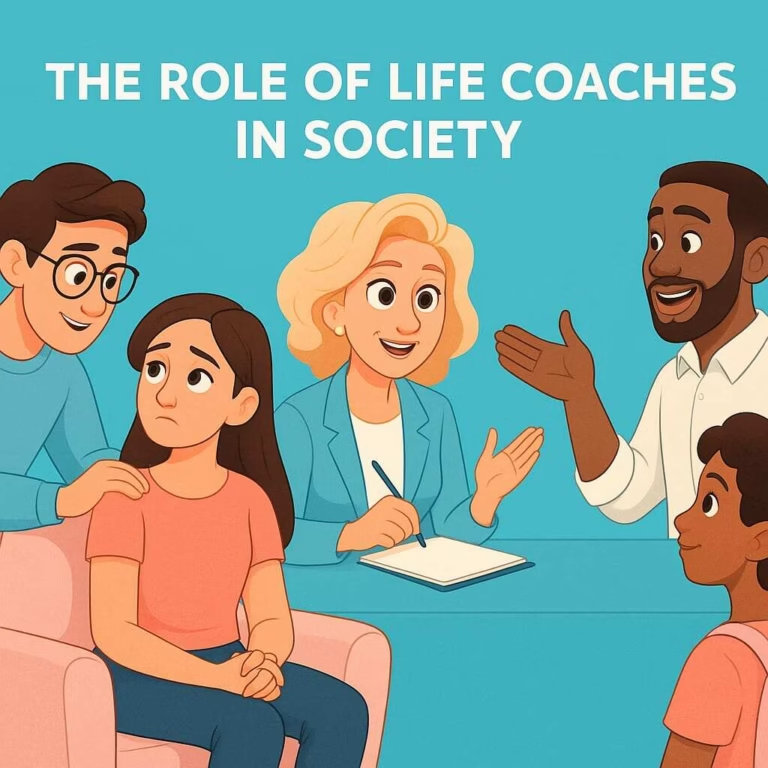
Conclusion: Coaching Is a Catalyst, Not a Crutch
If you’re feeling overwhelmed, stuck, or uninspired, it might be time to speak to a coach. A life coach can help you see possibilities where you saw roadblocks—and help you walk the path from confusion to confidence.
This isn’t just about achieving goals—it’s about transforming your everyday life into something extraordinary.
As Tony Robbins often says, “The only reason we really pursue goals is to cause ourselves to expand and grow. Achieving goals by themselves will never make us happy in the long term; it’s who you become, as you overcome the obstacles necessary to achieve your goals, that can give you the deepest and most long-lasting sense of fulfilment”

Ready to discover how life coaching can help you?
Book Your Complimentary 90 Minutes Coaching Call NOW
And if you are still wondering if you are ready for coaching, you can Take This Survey
